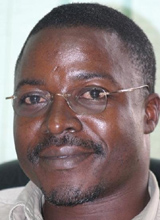On March 24, I received an e-mail from a close friend under the intriguing subject “What…?” On opening the e-mail, I discovered my friend was not impressed by two articles in that morning’s newspapers condemning the government’s recent proposal to amend the press law and introduce new restrictions on the publication of newspapers.
“What is all the drama journalists are acting out in the papers about the proposed amendments to Wawawa Bill?” my friend wrote in the email. Wawawa is slang for journalists at my social club.
He went on to ask me what was wrong with an amendment that would involve:
1.) Annual licensing
2.) Restrictions on foreign ownership
3.) Strengthening of disciplinary procedures
4.) Empowering the Media Council power to close media houses.
“By the way, these things are par for the course in the business world,” he added in the e-mail. I was busy that morning, so I wrote but a quick note to my friend: “I guess the premise is that ‘the media are not like any other business.”
• CPJ to Speaker:
Reject this
flawed bill
I have no problems with some restrictions on foreign ownership. Similarly, licensing would not be terrible as long as it is not used unduly to restrict freedom of expression. Uganda is a signatory to several regional and international declarations and protocols that are very clear on how licensing and regulation of the media should proceed. The regulator, for one, should be independent.
Below are some specific comments on what I consider problematic provisions. Fortunately, I am told the Minister of Information said at a recent media conference that these were still proposals that could be subject to change.
The proposed requirement that newspapers obtain annual licenses, which can be revoked by the Media Council (read the government), is very dangerous, especially when looked at in the context of other provisions that create and criminalize publication offenses. The Media Council could easily revoke or refuse to renew the license of a newspaper accused of committing the new publication offenses the bill creates. And this could be done even before a competent court pronounces itself on whether the newspaper in fact committed those offences. This is what happened to the Central Broadcasting Service, or CBS. The Broadcasting Council (the government, really) accused, prosecuted, and found the station guilty.
What makes this bill even more dangerous is a proposal to have information the minister effectively appointing the chairman of the Media Council. If adopted, this would further erode the independence of the regulator. Currently, the members of the Media Council elect a chairperson from among themselves. But even then, the way the council is constituted makes it easy for the minister to interfere with its independence. The proposed amendment does not address this. Instead, it worsens what is already a bad situation. It is wrong to grant such powers (to revoke the license of a newspaper) to a regulatory body whose independence cannot be guaranteed.
Also, some of the proposed licensing conditions ( “proof of existence of adequate technical facilities,” for example) are concerning. It appears that the government is worried that under the current law anybody can easily start a newspaper. But this is the very essence of freedom—to impart information. Obviously this has implications on the quality of journalism. But it is necessary in the interest of media pluralism and diversity. The enjoyment of free expression, in this case the freedom to impart and disseminate information, can’t be the preserve of only those who have “access to modern technical facilities” or those with the “right social, cultural, and economic values.” And who determines these values, anyway?
The proposed prohibition of the publication of “information injurious to national security, stability, and unity, to Uganda’s relationship with neighbors, and to the economy,” as well as the proposal to criminalize such publications is very dangerous as such provisions would be subject to subjective interpretation. What constitutes injury to national security? Who defines injury to national security? And who defines “economic sabotage?”
The notion of irresponsible journalism, which the government says it is trying to address, is quite loaded. The government often invokes it to refer to journalism that makes those in power uncomfortable either because it is too critical or because it challenges their authority. But we can agree on what constitutes irresponsible journalism. Inciting people to ethnic hatred and genocide, for instance, does not have constitutional protection in many jurisdictions. But the problem in Uganda and many parts of Africa is that the government wants to proscribe legitimate expression under the guise of protecting the public interest, when in fact it is protecting its own interests.
Press freedom and free expression facilitate the enjoyment of other rights enshrined in the constitution. This is not simply about media organizations and journalists. It is about every citizen. The Constitution gives all of us the right to freedom of speech and expression. The Constitution is also clear that limitations to these freedoms must be acceptable and demonstrably justifiable in a free and democratic society. The limitations to freedom of expression that the government is proposing are neither acceptable not justifiable in a free and democratic society.
Dr. Peter G. Mwesige is the executive director of the African Centre for Media Excellence. He is also a member of the governing board of the Independent Media Council of Uganda. He has previously worked as head of the Mass Communication Department at Makerere University, executive editor of the Daily Monitor in Kampala, and most recently as training editor of the Nairobi-based Nation Media Group.
